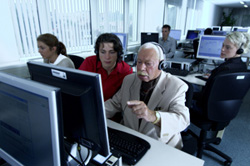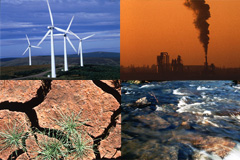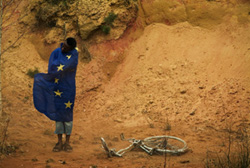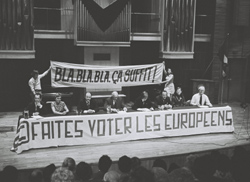The men and women who founded the European Union in 1957 had great vision. But even they could not have imagined what Europe – and the world – would look like 50 years later. It is likewise hard to tell what the next 50 years hold in store. But we do know some of the big challenges we will have to deal with.

Facing globalisation
It will be the EU's role to help Europeans prosper in a globalised world. This means first and foremost securing jobs and growth, and fostering economic competitiveness, while improving social welfare. EU investment in high technology and scientific research will be a crucial factor in achieving this. Globalisation was once perceived as a way to make rich and poor countries benefit from worldwide economic and financial integration. We see now that it produces winners and losers. Immigration pressures on the EU will come from all sides. As there are no internal frontiers, common rules are needed for our external ones. As time goes on, the EU will have to adapt immigration policy to take account of population ageing and potential labour shortages within its borders.

Global warming
Associated with the emission of greenhouses gases, global warming is seen as a huge environmental threat by EU governments and citizens as temperatures rise around the world. The EU has pushed hard for international corrective action. It is acting internally to reduce greenhouse gas emissions by 2012 in line with its obligations under the Kyoto protocol. It is committed to bigger cuts thereafter in a coordinated global effort. Part of the solution is to use energy more efficiently and produce more from low-polluting renewable sources inside the EU. The EU also needs to get more supplies of clean energy from reliable outside sources as its own reserves of oil and gas are depleted. To meet these challenges, the EU promotes renewables such as solar, wind and biomass to meet a growing share of our energy needs and aims to save up to 20 per cent of energy consumption by 2020 by using it more efficiently. To secure future supplies from outside, especially of gas, the Union seeks long-term stable supply relationships with energy-rich countries like Russia.

Europe in the world
How much further can the EU expand? The impact of future enlargements is a cause for concern for some Europeans. The EU will have to define its limits and will do so with the full involvement and consensus of its citizens. The bigger the Union is, the bigger its responsibilities. War between EU countries is now unthinkable, thanks to the unity that has been built up between them over the last 50 years. In an ever-changing, complex and unstable world, the EU will be called on to spread peace and stability beyond its borders. To do so, it will be more involved in conflict prevention and peace keeping; exercise its influence to establish better and fairer rules for world trade; and maintain, wherever necessary, its role in humanitarian assistance and development aid.

Encouraging democracy and participation
To master the challenges of the next 50 years, the European Union will need better legal and management tools. These are not yet to hand. A first attempt to provide them stalled when voters in France and the Netherlands rejected a draft EU constitution in 2005. EU leaders recognised that part of the reason the vote failed is that EU citizens feel ill-informed about Europe and excluded from its decision-taking. As a response, several initiatives were launched in order to reconnect with citizens and give them a stronger say on upcoming policy matters, including the institutional reforms that will be necessary in the next few years to ensure the efficient functioning of the EU in the 21 st century.







